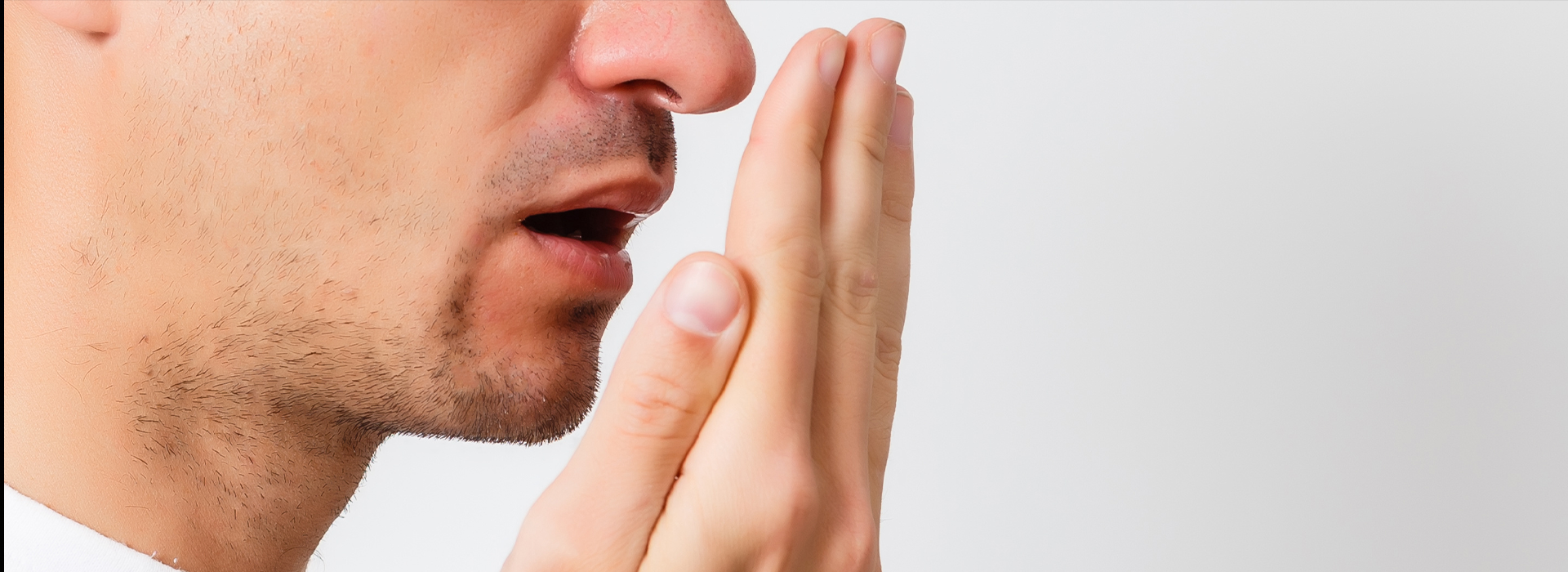

Bad breath got you down? We understand how uncomfortable and embarrassing this may feel and will help you figure out the cause and solution to the issue.
Most bad breath results from poor oral hygiene, but may also be caused by gum disease and other medical conditions. If your home care needs some tweaking, we will coach you on proper brushing and flossing techniques and tongue scraping, and arrest any gum disease. We will also make recommendations for products to help prevent odors and provide physician referrals if medical conditions are the culprit.
Halitosis is described as bad breath that is noticeable to the individual or others. The most common causes of halitosis are poor oral hygiene, lingering food particles, gum disease, and certain medical conditions.
Most cases of halitosis can be treated by brushing and flossing your teeth, and brushing your tongue twice a day. Many people skip tongue cleaning, but this step is very important in battling bad breath as the tongue collects significant plaque and odor-causing bacteria. If brushing your tongue makes you gag, there are various tongue scrapers on the market to choose from.
If these steps don't improve your breath, it's important that we evaluate your teeth and gums to rule out cavities and gum disease.
Garlic and onions contain smelly sulfur compounds that linger in your mouth, and after being absorbed into your bloodstream, continue to expel the odor when you exhale.
Coffee and alcohol create a favorable environment for growing oral bacteria. They have a drying effect and reduce the flow of saliva, allowing bacteria to linger in the mouth.
Peppermint can relax the lower esophageal sphincter, a valve-like muscle that forms a barrier between your esophagus and your stomach. When the valve works appropriately, it opens when you swallow to let food enter the stomach, and then closes tightly. When the valve relaxes, odors and acids from your stomach can flow back into your throat, contributing to bad breath.
Acidic foods harness an acidic oral environment, which is conducive to odor causing bacteria.
Eating an excessive amount of protein contributes to bad breath, producing ammonia during the digestive process and allowing the foul smelling odor to escape through your mouth.
Drinking water throughout the day helps to flush food particles from your mouth, and promotes the production of saliva. This helps to keep your mouth clean and have less food for odor causing bacteria to feed on. Xylitol gum and mints are excellent to combat bad breath. Chewing gum loosens food and promotes saliva production, helping to keep your mouth clean. Xylitol in particular fights the type of bacteria that causes cavities and further combats bad breath.
If gum disease and tooth decay have been ruled out, your oral hygiene is impeccable and dietary changes have not helped with your bad breath, it is time to see your medical doctor to rule out gastrointestinal conditions that may be the source of your issue.
It's important to be consistent with your routine dental cleanings to remove build up of plaque and bacteria from your mouth. Our doctors will also confirm that no oral disease is present, keeping odor producing bacteria at bay and keeping you feeling confident about your breath!
Share Your Smile Rewards
Our New Patient Referral Program
Learn More »